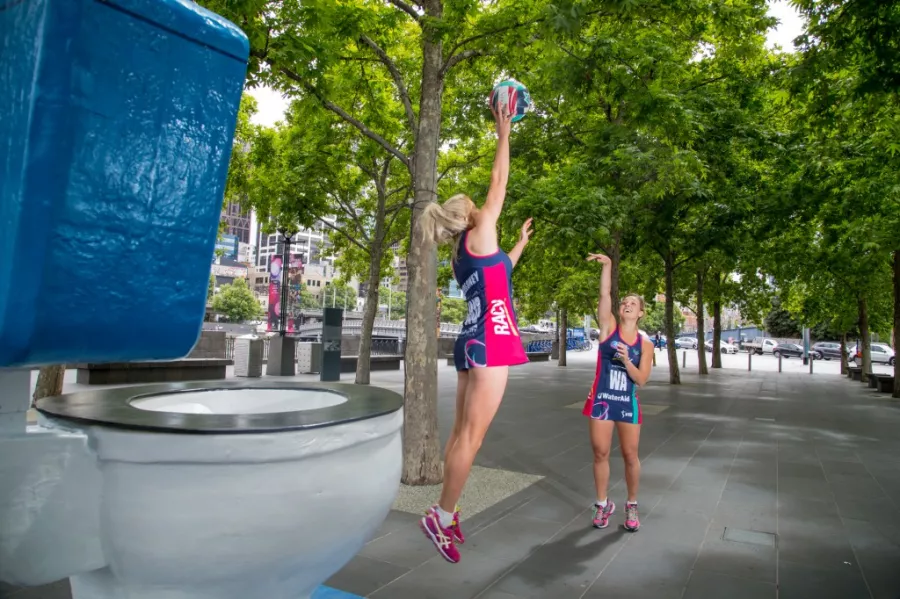Melbourne Vixens and Australian Diamonds netballer Liz Watson is visiting Papua New Guinea (PNG) from 7-11 December 2015.
Travelling with WaterAid and Netball Victoria, Watson will be hosted by Netball Papua New Guinea and their national team captain Lua Rikis to learn about the challenges facing young women in Papua New Guinea in accessing clean safe water, sanitation and hygiene, their difficulties completing school and the lack of gender equality.
Watson will meet with the PNG national netball team and the Patron of Netball PNG and PNG Prime Minister’s wife Lady Lynda Babao in Port Moresby, visit a WaterAid project at a school in Port Moresby to play netball with local girls, and discuss issues of water, sanitation and hygiene, as well as visiting communities in East Sepik and maternal health facilities in Mt Hagen.
International development agency WaterAid is using sport to drive empowerment as a means to poverty reduction in Papua New Guinea.
“WaterAid is using sport as a way to engage with communities in Papua New Guinea about the benefits of water, sanitation and hygiene and to empower communities to demand better access to these services from their governments. Sport has a universal ability to connect people and drive community involvement, empowerment and change,” said WaterAid Australia Chief Executive Paul Nichols.
“It’s about empowering communities and particularly young women to improve services in their communities and schools, and play an active role in influencing governments and reducing poverty in their communities,” said Mr Nichols.
Studying to be a teacher on top of her netball commitments, Watson is concerned with how the lack of water, toilets and hygiene can curtail girls’ education and how access to these vital services can create the opportunity for people to take the first steps out of poverty.
“I’m excited to be visiting Papua New Guinea with WaterAid because the health and wellbeing of young women around the world is something I am extremely passionate about. Sport is a vehicle that encourages self-esteem and leadership, while water, sanitation and hygiene are vital to improving health, reducing poverty and ensuring girls stay in school,” Watson said.
Five million people in Papua New Guinea don’t have access to safe water and six million people don’t have access to adequate sanitation. Over 1,000 children die every year from diarrhoea caused by unsafe water and poor sanitation in Papua New Guinea. Access to clean drinking water and sanitation is an issue for over half of Papua New Guinea’s population, many of whom live in remote, rural locations that are hard to reach with essential services. There is low access to education in rural areas, and a widespread lack of understanding about the importance of toilets and basic hygiene practices to health. Diarrhoeal diseases are common. The annual monsoon season is often followed by periods of drought, so seasonal water shortages are commonplace. Periodically the country also suffers from severe droughts caused by the El Niño effect, which Papua New Guinea is facing in 2015.
Globally 650 million people are without safe water and 2.3 billion are without toilets.
